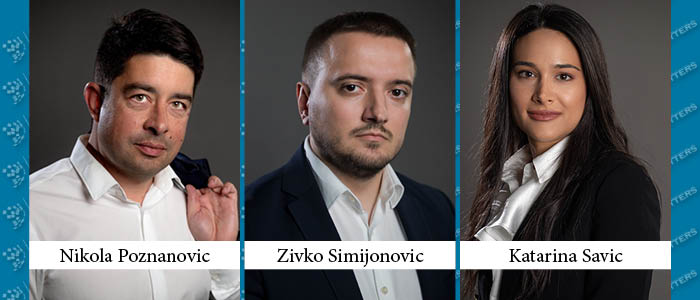The Serbian Commission for Protection of Competition (“Commission”) has recently determined that the companies KTG Solucije d.o.o. Subotica (“KTG”) and Eco sense doo Subotica (“Eco Sense”) entered into a restrictive agreement that significantly impacted competition in public procurement procedures related to hygiene maintenance materials and services.
Back in April 2023, the Commission initiated a competition infringement investigation procedure after suspicions arose regarding possible violations, on the ground of the initiative from the Public Procurement Office.
Based on an analysis of documentation received from the initiative and further examination of publicly available data, the Commission has determined that in three separate public procurement procedures, KTG, initially the preferred bidder, withdrew its offer. Consequently, contractors engaged with the second-ranked bidder, Eco Sense, at higher prices compared to those initially offered by KTG.
Moreover, by analysing the Internet Protocol address, it was determined that KTG and Eco-sense almost always accessed the Public Procurement Portal from identical IP addresses, as well as from devices that were connected through the same Internet network or possibly through the same device.
Consequently, on 29 December 2023, the Commission rendered its decision, determining that KTG and Eco Sense had indeed entered into a restrictive agreement, which aims at significant distortion, restriction, and prevention of competition, breaching the Law on Protection of Competition.
The Law prescribes that, in case of entering into or implementing a restrictive agreement, a competition protection measure will be determined, in the form of an obligation to pay a pecuniary fine amounting to up to 10% of the total annual revenue generated in the Republic of Serbia. Furthermore, pursuant to the Law, the pecuniary fine may be reduced in case of fulfillment of certain conditions.
By its decision, the Commission imposed a pecuniary fine in the amount equal to approximately 1% of the total annual turnover in the Republic of Serbia in 2022 of Eco Sense. Additionally, the Commission found that the conditions for reducing the pecuniary fine were satisfied in the case of KTG. As a result, the Commission imposed a pecuniary fine for KTG in the amount equal to approximately 0.2% of the total annual revenue in the Republic of Serbia in 2022.
LENIENCY PROGRAM
Considering the information provided by KTG, as a participant in the restrictive agreement, the Commission determined that the conditions for reducing the pecuniary fine were met, which makes this case the first “subsequent” leniency program applied by the Commission.
Namely, during a dawn raid at KTG’s premises, KTG submitted a request for a reduction of the pecuniary fine on the basis of providing the Commission with evidence that was not available to it before.
KTG’s legal representative submitted a statement confessing KTG’s participation in a restrictive agreement with Eko Sense, as well as a statement disclosing that in June 2021, KTG had entered into an agreement with another bidder to participate in public procurement of the contractor JKP Stadion Subotica, instead of Eco Sense. This public procurement was not previously brought to the Commission’s attention. Additionally, KTG stated that they had agreed with Eco Sense on KTG’s participation in the public procurement of the contractor JKP Stadion Subotica, as Eko Sense had recently been incorporated and did not meet the conditions for participation, and provided the Commission with relevant evidence which were not available to the Commission before disclosure by KTG.
CONCLUSION
This decision of the Commission highlights the importance of maintaining competitive integrity within public procurement processes. It serves as a reminder of the consequences awaiting those who engage in anticompetitive behavior, highlighting the Commission’s commitment to upholding fair competition in Serbia’s market.
Furthermore, given that this case marks the first use of a “subsequent” leniency program, and considering KTG’s proactive approach, including the submission of crucial evidence, during the procedure, i.e. after its initiation, it is important to emphasize the significance of cooperation and transparency in these proceedings.
By Nikola Poznanovic, Partner, Zivko Simijonovic, Senior Associate, Katarina Savic, Senior Associate, JPM & Partners
















